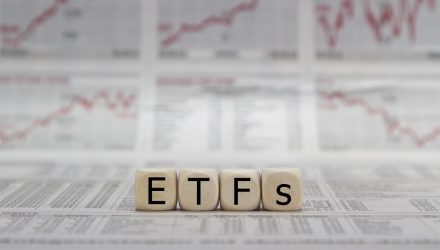Leveraged exchange-traded funds use financial derivatives such as options contracts, futures, margin accounts, and debt to boost the returns of an underlying index. While traditional ETFs typically follow the securities in their underlying index on a one-to-one basis, leveraged ETFs may aim for a 2:1 or 3:1 ratio. These ETFs can be designed for both short and long trades (as in, either a positive or negative leverage ratio) so investors can access the upside and downside of market activity.
While there are several leveraged ETFs for underlying indices such as the S&P 500 and the Dow Jones Industrial Average, Russell 2000 leveraged ETFs are particularly compelling to investors because of their wider range of stocks and focus on small-caps, which are typically growth oriented.
Russell 2000 ETFs closely track the Russell 2000 Index, which combines 2000 of the small-cap companies in the Russell universe of 3000 stocks. The Russell 3000 tracks nearly 98% of all publicly traded U.S. stocks.
Here are 7 leveraged/inverse Russell 2000 ETF funds for investors:
Direxion Daily Small Cap Bull 3x Shares (TNA)
The Direxion Daily Small Cap Bull 3X Shares seeks the daily investment results, before fees and expenses, of 300% of the performance of the Russell 2000 Index. This leveraged ETF seeks a return that is 300% of the return of their benchmark index for a single day. The fund should not be expected to provide three times the return of the benchmark’s cumulative return for periods greater than a day. TNA has an expense ratio of 1.05% and $920 million in assets under management.
Direxion Daily Small Cap Bear 3X Shares (TZA)
The Direxion Daily Small Cap Bear 3X Shares seeks the daily investment results, before fees and expenses, of -300%, or 300% of the inverse of the performance of the Russell 2000 Index. This leveraged ETF seeks a return that is -300% of the return of their benchmark index for a single day. The fund should not be expected to provide negative three times the return of the benchmark’s cumulative return for periods greater than a day. TZA has an expense ratio of 1% and $551 million in AUM.
ProShares Short Russell2000 (RWM)
This short ProShares ETF seeks a return that is -1x the return of its underlying benchmark (target) for a single day, as measured from one NAV calculation to the next. Due to the compounding of daily returns, ProShares’ returns over periods other than one day will likely differ in amount and possibly direction from the target return for the same period. These effects may be more pronounced in funds with larger or inverse multiples and in funds with volatile benchmarks. Investors should monitor their holdings as frequently as daily. RWM has $632 million in AUM and an expense ratio of 0.95%.
ProShares Ultra Russell2000 (UWM)
This leveraged ProShares ETF seeks a return that is 2x the return of its underlying benchmark (target) for a single day, as measured from one NAV calculation to the next. Due to the compounding of daily returns, ProShares’ returns over periods other than one day will likely differ in amount and possibly direction from the target return for the same period. These effects may be more pronounced in funds with larger or inverse multiples and in funds with volatile benchmarks. Investors should monitor their holdings as frequently as daily. The fund has $121 million in assets and an expense ratio of 0.95%.
ProShares UltraPro Russell2000 (URTY)
This leveraged ProShares ETF seeks a return that is 3x the return of its underlying benchmark (target) for a single day, as measured from one NAV calculation to the next. Due to the compounding of daily returns, ProShares’ returns over periods other than one day will likely differ in amount and possibly direction from the target return for the same period. These effects may be more pronounced in funds with larger or inverse multiples and in funds with volatile benchmarks. Investors should monitor their holdings as frequently as daily. The $170 million fund has an expense ratio of 0.95%.
ProShares UltraShort Russell2000 (TWM)
This short ProShares ETF seeks a return that is -2x the return of its underlying benchmark (target) for a single day, as measured from one NAV calculation to the next. Due to the compounding of daily returns, ProShares’ returns over periods other than one day will likely differ in amount and possibly direction from the target return for the same period. These effects may be more pronounced in funds with larger or inverse multiples and in funds with volatile benchmarks. Investors should monitor their holdings as frequently as daily. The ETF’s expense ratio is 0.95% and has $202 million in AUM.
ProShares UltraPro Short Russell2000 (SRTY)
This short ProShares ETF seeks a return that is -3x the return of its underlying benchmark (target) for a single day, as measured from one NAV calculation to the next. Due to the compounding of daily returns, ProShares’ returns over periods other than one day will likely differ in amount and possibly direction from the target return for the same period. These effects may be more pronounced in funds with larger or inverse multiples and in funds with volatile benchmarks. Investors should monitor their holdings as frequently as daily. The $232 million ETF has an expense ratio of 0.95%.
This article was last updated on November 3, 2022.
For more news, information, and strategy, visit the Leveraged & Inverse Channel.








